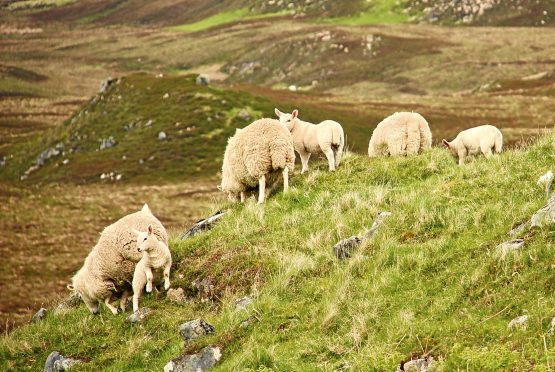The Scottish Government says it will consider making changes to the Scottish Upland Sheep Support Scheme (SUSSS) on a permanent basis.
The comments come following a plea from farmers’ union NFU Scotland for changes to the sheep coupled support scheme, which were introduced on a temporary basis last year, to become permanent.
Last year, the Scottish Government introduced changes to the scheme as a result of the impact poor weather was having on crofters and hill farmers.
The application deadline was extended to November 30 from October 16, and the period in which producers needed to retain stock, known as the retention period, was changed to run from December 1, 2017, until March 31, 2018.
According to NFU Scotland, these changes benefited many of the scheme applicants by enabling farmers and crofters more time to safely gather sheep on hills and crofts.
The union says it will now formally request that the extended deadline of November 30 become the standard application deadline.
It also wants the new retention period to be kept as well.
In response to the plea, a Scottish Government spokesman said: “The extension in the application window to November 30 was originally intended as a one-off event, in recognition of the exceptional weather conditions affecting the ability to gather flocks this year.
“However, the Scottish Government will be happy to consider the scope to adopt these changes on a more permanent basis.”
SUSSS, which is worth around £6million, is designed to support active hill farmers and crofters through a payment for a number of ewe hoggs kept as breeding replacements for flocks.
To be eligible for the scheme, farmers and crofters must have 80% or more of their land in the Basic Payment Scheme Region 3 and no more than 200 hectares (495 acres) of land in Region 1.
They can only claim support payments on home-bred stock females which must be kept on their holding, or away winterings, during the retention period.
The animals must be less than 12 months old at the start of the retention period, and producers can only claim on one ewe hogg for every four hectares.
